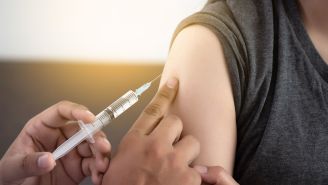The meningitis B (MenB) vaccine is required at some colleges and recommended at others.
Like several other vaccines—including the MenACWY vaccine, HPV vaccine, and several versions of the COVID-19 vaccine—the MenB vaccine requires more than one dose to give a person the most protection against infection.
Depending on the specific vaccine being used and the person receiving the vaccine, a person will need either two or three doses. The first dose is typically given between the ages of 16 and 23—but the preferred age for the first dose is between 16 and 18 years.
While the vaccine protects a young person against a bacterial infection with a high rate of serious complications and death, getting a vaccine can be inconvenient. It’s another appointment to make. Another trip to the pharmacy or doctor’s office. More paperwork to keep track of.
It also highlights another reason why you should be keeping a personal health record (sometimes called a PHR) for each member of your family.
Personal health records
A personal health record is a file that includes all relevant information about a person’s health. This information may include:
- Name and date of birth
- Blood type
- Emergency contacts
- A list of allergies to medications, food, materials, etc.
- A list of vaccinations and the date they were received
- Family health history—specifically any relevant information about the health of parents, siblings, and grandparents
- Personal health history—including conditions for which a person is currently receiving treatment, as well as any history of surgeries and medical procedures, accidents, or hospitalizations
- A list of medications that a person takes
- Copies of test results
Compiling a PHR
To compile each record, begin with your family’s healthcare providers, including primary care physicians and any specialists they have seen or are seeing:
- Many healthcare providers offer online portals where you can access all of your information.
- You can also request a complete file on each family member, including physician notes and test results (some providers may require a fee which you can ask about in advance).
- Request records from any physical or mental health specialists, and ask for your own copies of any imaging tests, such as x-rays, ultrasounds, CT scans, or MRIs.
You should also include your own notes—for example, logging any side effects from procedures or medications, as well as a list of symptoms related to chronic conditions or illnesses. Be as specific as possible—this information can be helpful to your family’s current healthcare providers, as well as any healthcare providers your family visits in the future.
Utilize technology
There are apps and programs available to manage healthcare information. Just be sure to save passwords and keep backup copies of everything. Consider keeping extra copies at a friend’s or family member’s house in case of emergency or natural disaster.
While it may seem like a lot of work, keeping personal health records lets you keep track of things like goals, concerns, and vaccinations so that you know you and your family are always up to date and receiving the best possible care. It also enables you to find a piece of information quickly when you need to answer a question for a healthcare provider, pharmacist, or a school faculty member.






